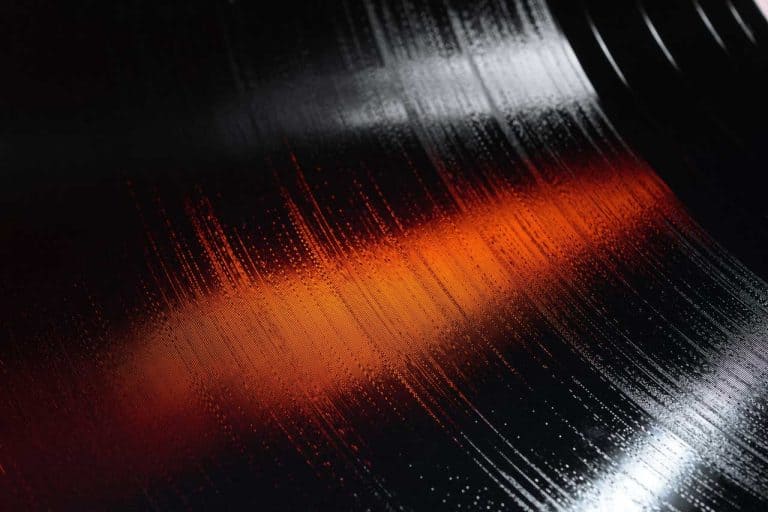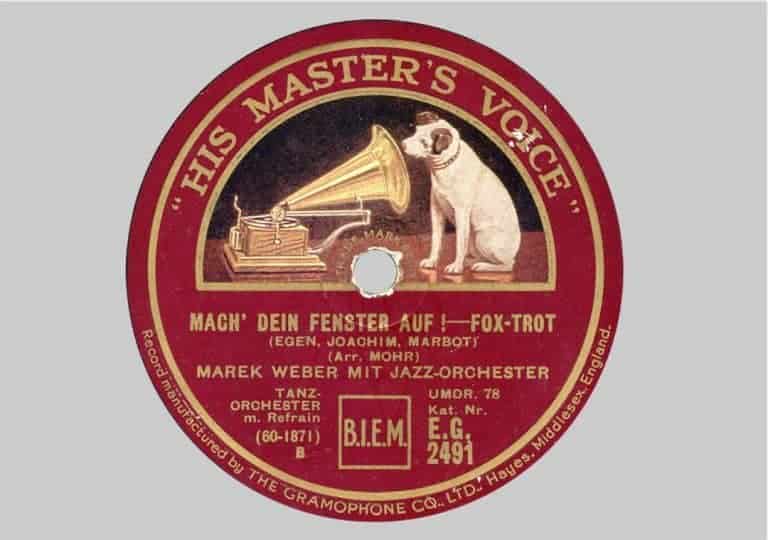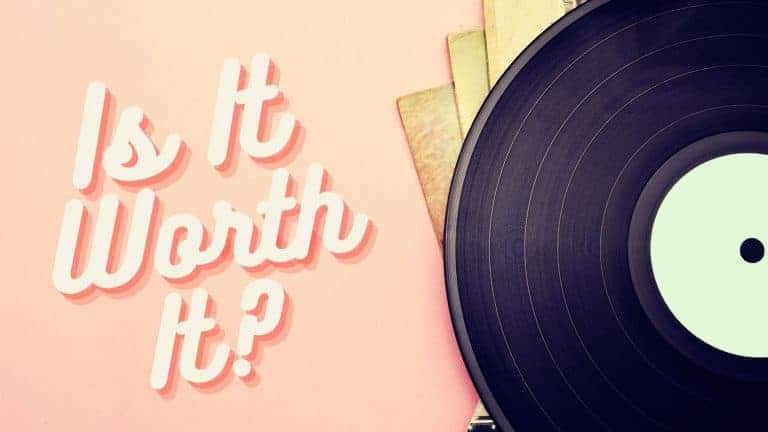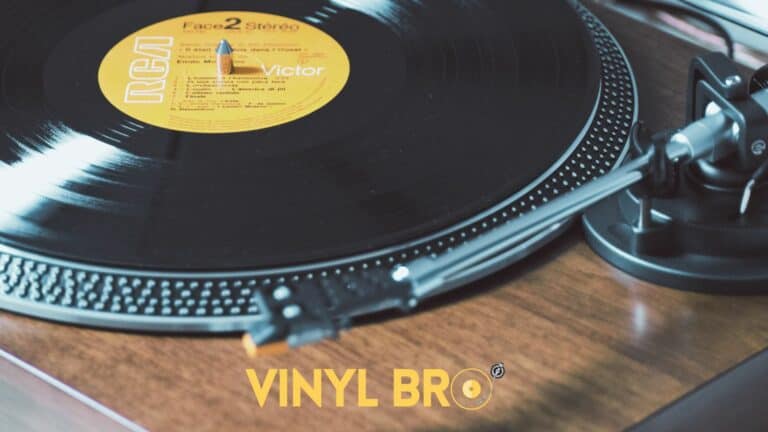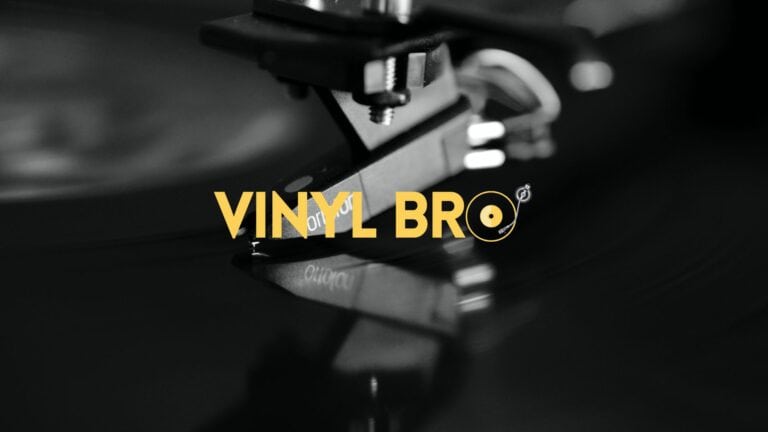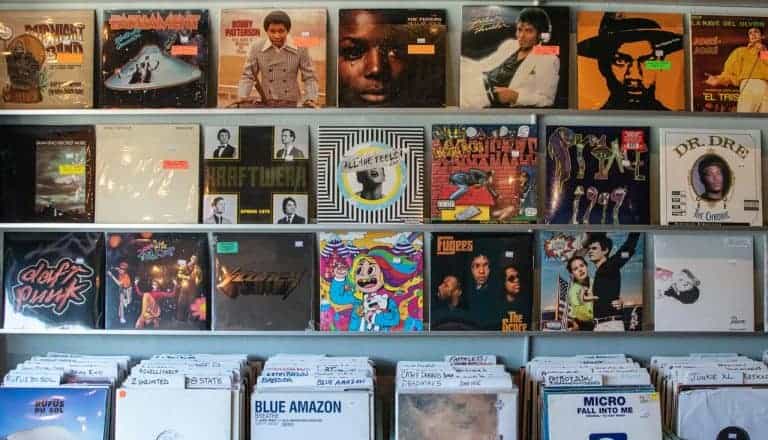What Is an EP? The Differences Between LP and EP and Single
Like a tantalizing appetizer before a grand meal, an EP can offer a tempting taste of an artist’s work. You’re probably wondering, ‘What’s an EP?’ Well, you’re in luck. We’re about to dive into the fascinating world of Extended Plays, their unique role in the music scene, the vinyl word, and how they compare to LPs.
So, stick around, you’re about to become an EP expert.
Key Takeaways – What is an EP?
- EPs are shorter than full-length albums but contain more songs than singles.
- EPs are used to test the waters and create buzz for an upcoming album.
- EPs allow artists to showcase their capabilities and style.
- EPs are cost-effective and require less time and resources to produce.
- EP vinyl releases come in several styles and sizes.
Introduction to EP’s, or Extended Plays.
You’ve probably come across the term ‘EP’ in the music industry, but do you really know what it means?
In our discussion, we’ll delve into the definition of an EP and explore its significance in the music world.
You’ll gain a deeper understanding of this format, its purpose, and how it shapes an artist’s career, so buckle up for an engaging ride through the rhythm of the music industry.

Definition of EP – What is an EP?
An EP is essentially a mini album that’s longer than a single and shorter than a LP album but contains more songs than a single. You’re likely to come across EPs in various music genres, from indie rock to hip hop. They’re a fantastic way for artists to test the waters without committing to a full album.
Typically, extended plays contain around four to six tracks or under 30 minutes, giving you a taste of the artist’s capabilities and style. It’s more substantial than a single, yet less daunting than a full album. In the music industry, EPs are often used as stepping stones to gauge an audience’s reaction or to create buzz for an upcoming album.
As a music lover, understanding the role and purpose of EPs allows you to appreciate the journey of your favorite artists.
What is an EP in the music industry
In the music industry, EPs are often seen as a tool to build momentum for a LP or to showcase an artist’s versatility. They’re shorter than traditional albums but incredibly powerful. EPs give you a glimpse of an artist’s potential and a snapshot of their current creative phase. They allow musicians to experiment and dip their toes into different genres or styles without the commitment of a LP, leading to innovative sounds. From a business perspective, EPs are cost-effective, requiring less time and money to produce than an album. This means artists can release music more frequently, keeping listeners engaged and excited for what’s next. In essence, an EP is a win-win for both artists and listeners.
EP vs LP – Difference Between LP and EP in Music
You might be wondering about the fundamental difference between LP and Ep records and how they impact the music industry.
Well, it’s not as complicated as you’d think, and understanding these differences could provide you with some intriguing insights into the world of music production.
Moreover, you’ll discover why releasing an EP can be a smart move for emerging artists, offering them unique advantages that they wouldn’t get from a full-length LP.
Difference between EP and LP
While you’re probably familiar with LPs, EPs might be a bit more confusing. To clear this up, let’s dive into the primary differences between EPs and LPs.
| EP | LP | |
|---|---|---|
| Meaning | EP stands for Extended Play | LP stands for Long Play |
| Tracks | Fewer (usually 4-6) | More (usually 10-12) |
| Duration | Shorter (up to 30 minutes of music) | Longer (over 30 minutes of music) |
EPs are like mini-albums. They have fewer number of songs and shorter duration than LPs. They’re usually released between full length album releases to keep fans engaged. Conversely, LPs are full-length albums with a longer playtime. They’re what you’d traditionally think of as an ‘album’. Understanding these differences can help you navigate the music world more precisely.
Benefits of releasing an EP
Releasing an ep album offers several benefits. It keeps fans engaged between LP releases and provides a platform for artists to experiment with their music style. As an artist, you’ll find that EPs allow you to keep the momentum going without the pressure of a studio album. They’re a fantastic way to showcase your versatility and can often serve as a bridge between two different creative phases.
Moreover, EPs are cost-effective. You’re not sinking as much time and resources into them as you would a full album. So, they’re a safer bet if you’re looking to try something new and gauge your fans’ reactions.
Releasing an EP – Extended Play Record, Spotify, iTunes, and Apple Music.
You’re ready to release your EP, but what’s the best way to do it and where should you release it?
In the following discussion, you’ll learn how to effectively release your EP and the platforms you can use for this venture.
We’ll delve into popular platforms like Spotify, Apple Music, and iTunes, critically analyzing their pros and cons in the context of EP releases.
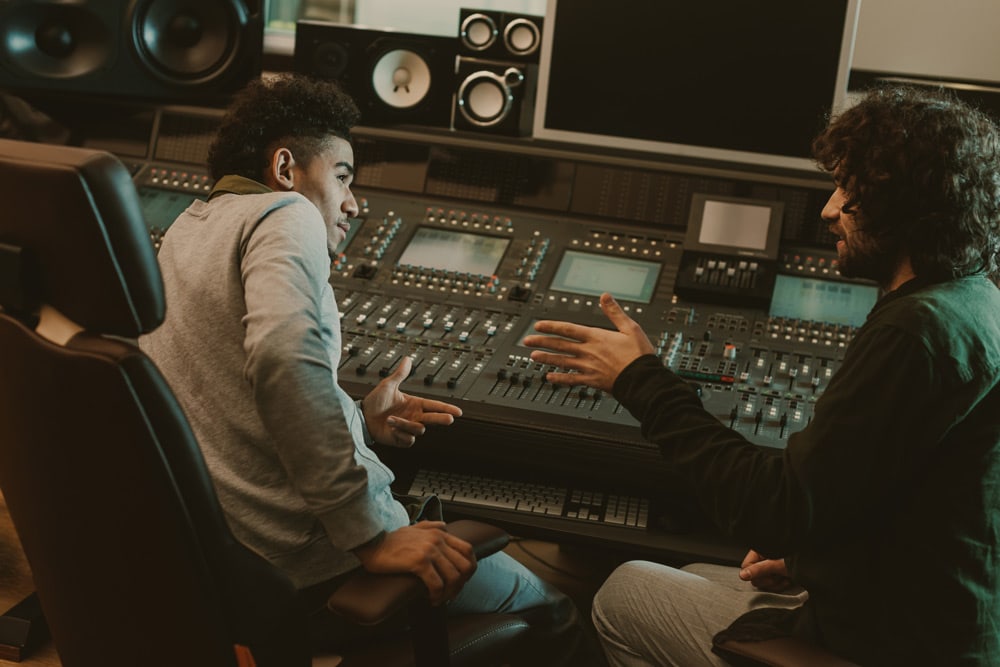
How to release an EP
It’s important to plan a marketing strategy before dropping your EP. You’ve poured your heart into your music, and it deserves to be heard. Don’t let it get lost in the digital noise. Identify your target audience, and tailor your promotion accordingly.
Social media is a powerful tool, so use it wisely. Tease your EP’s release with snippets and behind-the-scenes content. Engage with fans by answering comments and doing live streams.
Also, consider traditional press and radio. A well-written press release can pique interest and lead to features or reviews.
You might think releasing an EP is just about the music, but it’s also about how you present it to the world. Make sure your marketing strategy reflects the quality and passion in your work.
Platforms for EP release
Choosing the right platform for your music’s release can greatly influence its success, and there’s plenty to choose from. Consider your audience’s preferences; do they stream music online, prefer vinyl record format, or any other formats? Spotify, Apple Music, and YouTube Music are popular digital options, while Bandcamp allows for digital downloads, music streaming, and physical sales.
Each platform has its pros and cons. Spotify’s reach is vast, but per-stream earnings aren’t high. Apple Music pays better per stream, but isn’t as widely used. YouTube Music offers video possibilities, while Bandcamp gives you more control and better profit margins.
Weigh your options carefully. It’s not just about getting your EP out there—it’s also about maximizing its potential. Choose wisely, and your EP could be the stepping stone to a successful music career.
Spotify
Having explored various platforms for releasing your EP, let’s now delve into the specifics of using Spotify.
With over 345 million active users, Spotify offers an incredible platform for artists like you to share your EP. Spotify’s algorithm promotes new music, potentially boosting the visibility of your EP. Their artist dashboard provides valuable insights into your listeners’ demographics. You can submit your EP for playlist consideration, increasing your chances of getting discovered. You can also make use of Spotify’s social sharing features to promote your EP on other platforms.
Clearly, Spotify’s features are designed with artists in mind, providing opportunities to reach a massive audience. However, it’s not the only platform worthy of consideration. Let’s transition to understanding the potential of another popular music platform – Apple Music.
Apple Music
You’ll find that Apple Music, much like Spotify, also presents a wealth of opportunities for artists to get their music heard by a wide audience. Not only does it host a staggering 60 million songs, but its user-friendly design and prominent artist profiles make it easy for listeners to discover new music.
As an artist, you can take advantage of its analytics dashboard, ‘Apple Music for Artists’, to monitor your music’s performance. You’ll gain insights into listener demographics, song popularity, and performance trends.
You can also upload your EP directly to the platform, simplifying the process and ensuring your music reaches your fans quickly. It’s clear that Apple Music offers you an invaluable platform to launch and promote your EP.
iTunes
Moving from Apple Music, let’s delve into another music platform – iTunes. You’re probably familiar with iTunes, but do you know its relation to EPs?
iTunes, like Apple Music, plays a crucial role in the distribution of EPs. It offers artists a platform to release their EPs to a global audience. It provides a convenient way for fans to purchase and download their favorite artists’ EPs. It allows artists to earn revenue from their EPs. It also gives artists the chance to chart on iTunes’ various music charts with their EP releases.
Analyzing this, it’s clear that iTunes has contributed significantly to the popularity and accessibility of EPs.
This analysis of iTunes’ influence on the EP industry sets the stage for our next topic: the role of EPs in the music scene.
What is an EP in the Music Industry? Why Do Artists Release EPs vs LPs?
You might be wondering why many artists nowadays opt to release EPs rather than a full release. It’s not just a random trend, there are compelling reasons behind this strategy.
Delving into this topic, we’ll uncover not only why artists choose to go this route, but also how EPs can serve as a powerful tool for getting their music heard in an increasingly crowded industry.
Why artists release EPs
Artists often release EPs as a way to give fans new music without the pressure of creating a full album. Dropping an EP allows musicians to experiment with their sound, gauge listener response, and maintain relevance in the fast-paced music industry.
Specifically, artists release EPs to:
- Test new musical styles: Experiment with various genres without the commitment of an album.
- Quickly release music: Stay relevant by continually providing new content.
- Gauge audience response: Understand what their fans enjoy before investing in a full album.
- Promote tours or concerts: EPs often coincide with live performances, giving fans a taste of what to expect.
Why EPs help artists get their music heard
Having explored why artists release EPs, let’s dig deeper into how EPs help artists get their music heard. As an emerging artist, you should know that EPs aren’t just shorter albums; they’re powerful tools to grow your audience. EPs provide a taste of your music style without overwhelming listeners. Think of them as appetizers, tempting listeners to explore more of your work.
Here’s a simple comparison to show how EPs can boost your music career:
| Comparison Point | Full-Length Album | EP |
|---|---|---|
| Length | Longer, requires more time to listen | Shorter, easier to listen in one sitting |
| Cost | More expensive to produce | Cheaper and quicker to produce |
| Flexibility | Less room for experimentation | Allows more creative freedom |
| Frequency of Releases | Less frequent due to production time | Can be released more often, keeping fans engaged |
Capitalizing on these advantages, you’ll find EPs a viable route to getting your music heard.
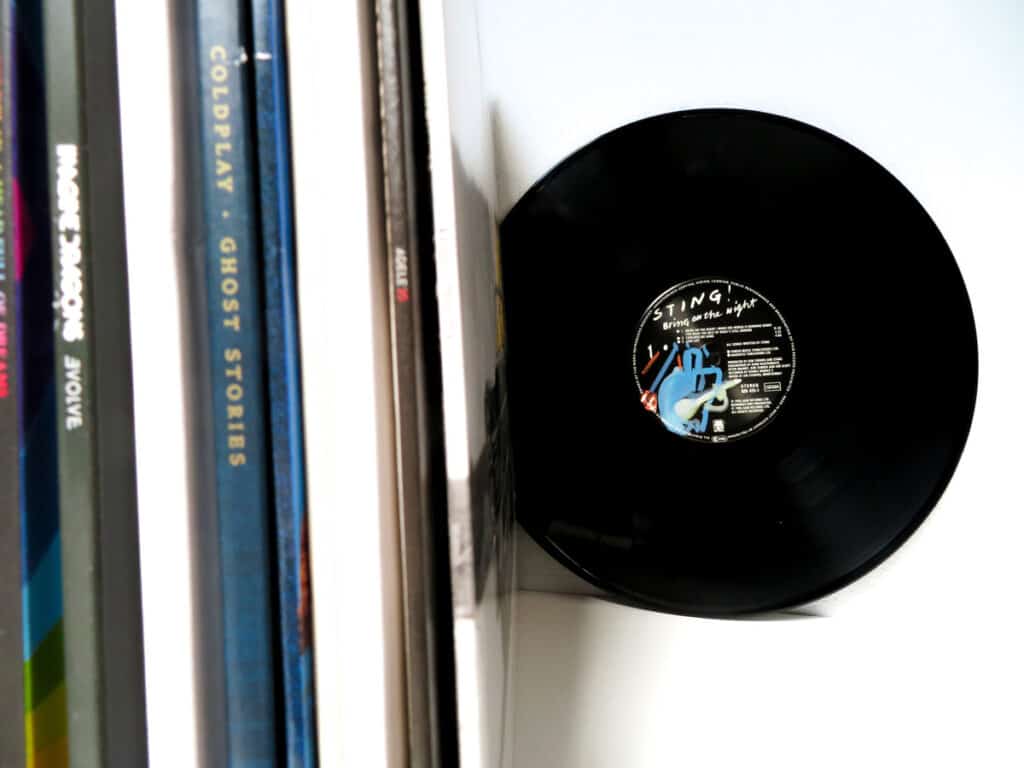
What is an EP? Conclusion
In conclusion, it’s clear that an EP plays a vital role in a musician’s career. As an artist, you can use an EP to showcase your music to a wider audience and break into the music industry.
Consider these significant reasons:
- It’s a cost-effective method for you to introduce your craft.
- It provides a platform to display your versatility and creativity.
- It helps to build your fan base and establish your brand.
- It allows you to experiment with new sounds without committing to a full album.
Don’t overlook the power of an EP. It’s not just about the music, it’s about the journey and the identity you’re creating.
Your EP could be the stepping stone that propels your music career to incredible heights.
Frequently Asked Questions
The Origin of Eps?
You’re curious about the historical origin of EPs, aren’t you?
Well, EPs, or Extended Play records, originated in the 1950s. They bridged the gap between single-song records and full-length albums, providing listeners with more music than a single but less than an album.
They were a shorter, more affordable option for music lovers, and allowed artists to release music more frequently.
How Does the Production Cost of an EP Compare to a Full Album?
Producing an EP is generally cheaper than a full album. You’re looking at fewer tracks, so it requires less studio time, fewer musicians, and less mixing and mastering.
On average, an EP might cost you between $5,000 and $15,000, while a full album could run upwards of $25,000. However, remember that costs vary widely based on factors like studio rates and the complexity of your music.
It’s crucial to plan your budget carefully.
Are There Significant Differences in the Promotion Strategies for Eps and Lps?
Yes, there are significant differences in how you’d promote EPs and LPs.
With EPs, you’re often introducing yourself as an artist, so you’d focus on building a fan base and gaining exposure.
For LP or a studio album, you’d typically have a solid fan base and press contacts, so your strategy might center on maintaining fan engagement and maximizing album sales.
However, the specifics can vary depending on your music, your audience, and the goals you have for your music career.
What Are Some Notable Examples of Successful Eps in the Music Industry?
You’re asking about successful EPs in the music industry. Some shining examples include ‘Jar of Flies’ by Alice in Chains, which was the first EP to reach number one on the Billboard 200 chart.
Additionally, The Beatles’ ‘Magical Mystery Tour,’ initially released as an EP in the UK, has left a significant mark.
Also, Kanye West’s ‘Ye vs. The People’ proved that EPs can still make a big splash in today’s music scene.
How Does the Digital Streaming Era Impact the Relevance of Eps?
In the digital streaming era, the relevance of EPs has skyrocketed. You see, listeners prefer shorter, more digestible music pieces.
Take Billie Eilish’s debut EP ‘Don’t Smile at Me’. It’s a hit on streaming platforms, allowing her to build a fanbase before her full album.

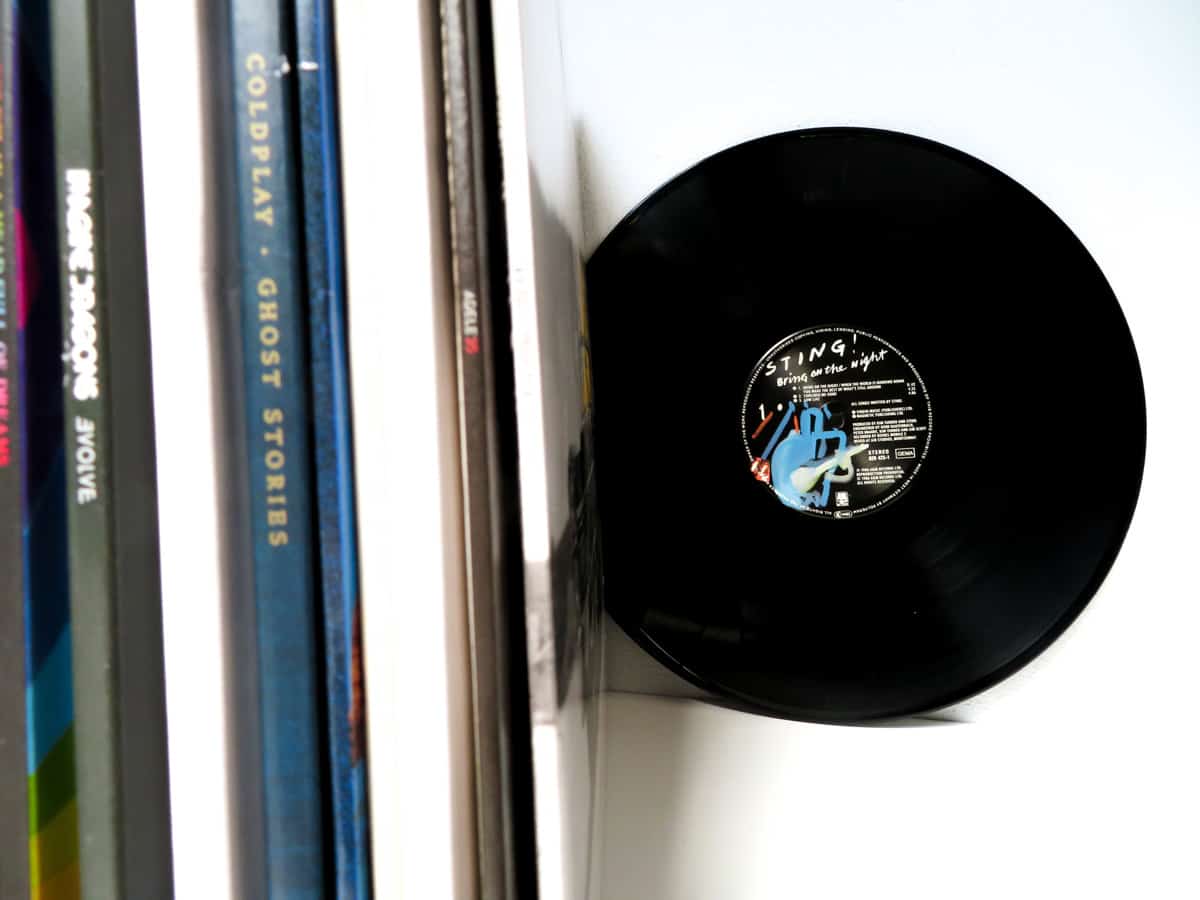


![Arcade Fire - Ep [VINYL]](https://m.media-amazon.com/images/I/51J2O6PfKfL._SL500_.jpg)
![Psycho White - EP [Explicit]](https://m.media-amazon.com/images/I/61-GE8KEZpL._SL500_.jpg)









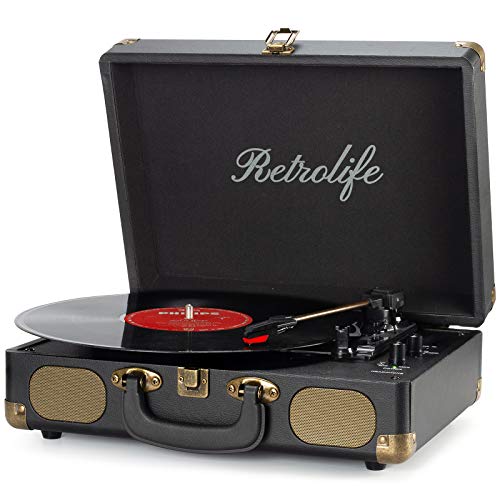








![The Rise And Fall Of A Midwest Princess[Anniversary Ed.] [My](https://m.media-amazon.com/images/I/41vPS4lTnZL._SL500_.jpg)

![Abbey Road (Anniversary Edition)[LP]](https://m.media-amazon.com/images/I/41ZIjjsCJWL._SL500_.jpg)
![Back to Black [Vinyl]](https://m.media-amazon.com/images/I/41EIfdK8k1L._SL500_.jpg)










